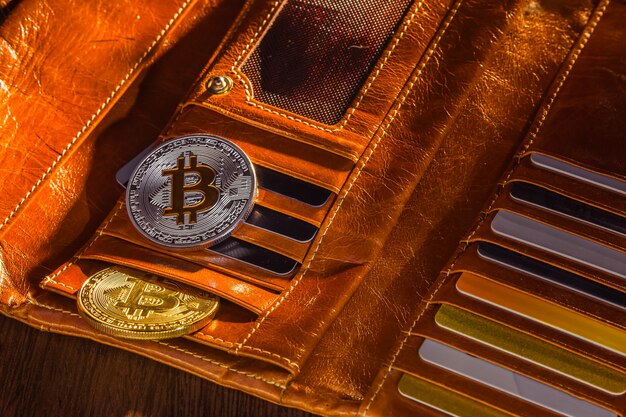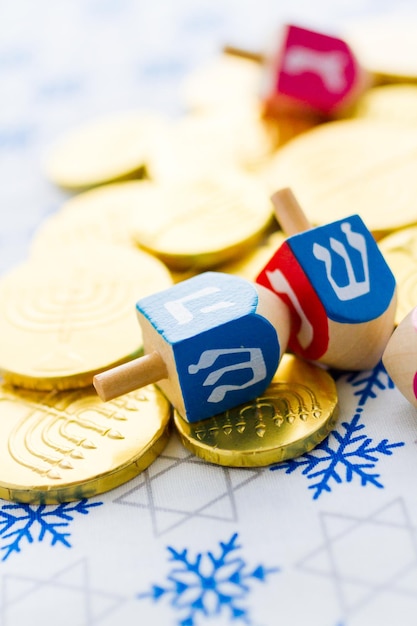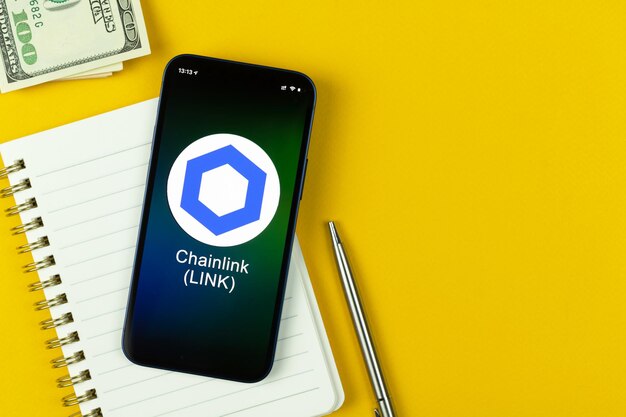Trust Wallet Review 2024: A Comprehensive Look at Its Security Features – Is It Safe?
Trust Wallet, a decentralized wallet solution, has been gaining popularity since its inception in 2017. In our Trust Wallet Review 2024, we delve deep into its features, focusing primarily on its security aspects. With the increasing number of digital assets and wallets available in the market, it is crucial to determine if Trust Wallet can be trusted. Let us explore its security features that make it stand out from competitors.
Private Keys
One of the most critical factors when considering a cryptocurrency wallet’s security is its handling of private keys. Trust Wallet, being a non-custodial wallet, puts users in complete control of their funds. The private key is stored locally on the user’s device, ensuring that no third party has access to it.
Biometric Authentication
Another security feature that adds an extra layer of protection is biometric authentication. Trust Wallet supports fingerprint and face recognition, allowing users to securely access their wallet without the need for manual input of passwords.
Hardware Wallet Integration
For those looking for an even more secure solution, Trust Wallet offers integration with hardware wallets like Ledger and Trezor. This allows users to store their keys offline, reducing the risk of potential attacks.
Multi-Asset Support
Trust Wallet’s extensive multi-asset support makes it an attractive choice for users dealing with various digital assets. It currently supports over 160 cryptocurrencies and more than 40,000 tokens. This diversity in asset support adds to the wallet’s versatility.
User Experience
Beyond security, Trust Wallet boasts an intuitive and user-friendly interface. It offers features such as QR code scanning for quick transactions and an in-app
dApp browser
for easy access to decentralized applications. These aspects enhance the overall user experience, making Trust Wallet a preferred choice for many crypto enthusiasts.
Customer Support and Community
Lastly, Trust Wallet has a responsive customer support team and an active community. Users can reach out via email, social media platforms, or the dedicated support forum for assistance with any issues they encounter. The wallet’s large user base also ensures that help is readily available from other community members through various online channels.
In conclusion, Trust Wallet’s robust security features, extensive asset support, user-friendly interface, and responsive customer support make it a reliable and secure choice for managing your digital assets. Our Trust Wallet Review 2024 highlights these aspects, giving you peace of mind when considering adopting this decentralized wallet solution.

Exploring Trust Wallet: A Comprehensive Review of Its Security Features in 2024
Trust Wallet, a renowned name in the realm of cryptocurrency wallets, has been gaining popularity among users for its user-friendly interface and wide range of features. With the increasing adoption of digital currencies, the significance of having a secure wallet cannot be overstated. In this comprehensive review, we delve deep into Trust Wallet’s security features and assess its safety for users in 2024.
Brief Overview of Trust Wallet
Trust Wallet is a decentralized, non-custodial wallet that supports over 160 cryptocurrencies and 40,000 tokens. Users have complete control over their private keys, ensuring they are the only ones with access to their funds. The wallet’s intuitive interface and seamless user experience make it a favorite among both novice and experienced users.
Importance of Security in the World of Digital Currencies
Security is paramount when dealing with digital currencies, and choosing the right wallet plays a crucial role in safeguarding your assets. With the frequency of cyber-attacks on cryptocurrency exchanges and wallets, it’s essential to evaluate the security features of any wallet before making a decision.
Trust Wallet’s Security Features
To provide a thorough understanding of Trust Wallet’s security features, let’s explore some of the essential aspects:
Multi-factor Authentication (MFA)
Trust Wallet offers MFA, providing an additional layer of security to your account. Users can enable this feature through Google Authenticator or SMS verification.
Biometric Security
For added convenience and security, Trust Wallet supports biometric authentication using your device’s fingerprint scanner or facial recognition.
Secure Key Storage
Trust Wallet’s decentralized architecture ensures that user private keys are stored locally on their devices, providing an extra layer of security.
Regularly Updated Software
Trust Wallet’s developers frequently release updates to address any potential vulnerabilities and ensure the wallet remains secure.
No Withdrawal Fees
Users don’t have to pay any withdrawal fees when transferring their assets from Trust Wallet, adding another layer of security by reducing the need for third-party services.
Assessing Trust Wallet’s Safety in 2024
Given the importance of security and Trust Wallet’s robust feature set, it is a promising choice for users in 202However, it’s essential to remember that no wallet is completely immune to vulnerabilities. Always practice good security habits such as using strong passwords and enabling MFA for added protection.

Background of Trust Wallet
Origin and History: Trust Wallet, a
mobile application
in May 2017 by Viktor Radchenko. Its main objective was to provide users with a secure and easy-to-use solution for managing their digital assets. Over the years, Trust Wallet expanded its offerings beyond mobile, introducing a
desktop version
and a
browser extension
.
Growth and User Base: As of 2024, Trust Wallet has
over 15 million
registered users worldwide. Its growth can be attributed to its user-friendly interface, multi-currency support (over 40,000 assets), and integration with popular decentralized finance (DeFi) platforms. Trust Wallet’s commitment to security, transparency, and privacy has made it a preferred choice for both seasoned crypto investors and newcomers.
Key Partnerships and Collaborations: Trust Wallet’s success can also be linked to its strategic collaborations within the crypto industry. In 2018, it was acquired by Binance, one of the world’s largest cryptocurrency exchanges. This acquisition allowed Trust Wallet to leverage Binance’s resources and expertise in the crypto space, leading to enhanced security features, improved user experience, and access to new functionalities. In 2021, Trust Wallet partnered with
Binance Smart Chain
to become the default wallet for the network. Additionally, it collaborated with major DeFi projects like
PancakeSwap
and
SushiSwap
, further solidifying its position as a leading player in the decentralized finance sector.

I Security Features Overview
Security is a top priority for any cryptocurrency exchange or wallet service. I Security Features Overview at our platform is designed to provide users with robust protection for their digital assets. Below, we’ll discuss some of the key security features, focusing on multi-currency support and user control.
Multi-currency Support and User Control
Our platform supports a diverse range of cryptocurrencies and tokens. This extensive support aims to cater to various user needs and preferences. Users can easily manage multiple digital assets under one secure roof.
Supported cryptocurrencies and tokens
Some of the supported digital currencies include, but are not limited to: Bitcoin (BTC), Ethereum (ETH), Litecoin (LTC), Ripple (XRP), Bitcoin Cash (BCH), Binance Coin (BNB), and many more. Users can check for the latest list of supported assets on our website or through customer support.
User control over private keys and assets
User control is another critical aspect of our security features. Users have complete control over their private keys, ensuring that they retain sole access to their assets. This user-controlled approach offers enhanced security as users do not need to trust a third party for holding their digital assets.
By employing user-controlled private keys, our platform eliminates the risk of potential security breaches associated with trustless third parties. It also enhances users’ flexibility as they can easily transfer their assets to different wallets or exchanges at any time.

Biometric Authentication and Two-Factor Authentication (2FA):
Biometric authentication, a type of identity verification method, uses unique biological characteristics to grant access to devices or applications. This
seamless and convenient authentication
process relies on fingerprints, facial recognition, voice recognition, or other distinct features unique to each individual. The importance of biometric authentication lies in its
enhanced security measures
. Compared to traditional password-based methods, biometrics are more resilient against attacks like phishing and keylogging. Additionally, it eliminates the need to remember complex passwords, improving
user experience
.
Implementation of Two-Factor Authentication (2FA) for added security:
Two-Factor Authentication (2FA), also known as Multi-Factor Authentication (MFA), is an additional security layer that requires two different types of authentication factors to verify a user’s identity. Generally, 2FA involves a
something you know (password)
and
something you have
(e.g., a mobile device or a token). By combining biometric authentication with 2FA, an extra layer of security is added to prevent unauthorized access, making it an ideal solution for securing sensitive information in digital wallets like Trust Wallet.
Enabling and Disabling Biometric Authentication and 2FA in Trust Wallet:
To enable biometric authentication and 2FA in Trust Wallet, follow these steps:
- Open the Trust Wallet app.
- Navigate to your
Profile
or
Settings
tab.
- Select Security & Privacy.
- Tap on the feature you’d like to enable: “Biometric Authentication” or “2FA”
- Follow the prompts to complete the setup process.
To disable biometric authentication and 2FA, follow these steps:
- Open the Trust Wallet app.
- Navigate to your
Profile
or
Settings
tab.
- Select Security & Privacy.
- Tap on the feature you’d like to disable: “Biometric Authentication” or “2FA”.
- Follow the prompts to complete the disabling process.

Seed Phrases and Backup Solutions
Understanding the Importance of Seed Phrases:
A seed phrase is a series of words that are used to restore access to your cryptocurrency wallet. It serves as the master key to your digital assets, enabling you to recover your funds if you lose or damage your device. Losing your seed phrase could lead to losing access to your wallet and the cryptocurrencies stored in it, making it a crucial component of securely managing digital assets.
Trust Wallet’s Backup Solutions:
a. Local Storage:
Trust Wallet, a popular self-custodial wallet, offers several backup solutions for users to safely store their seed phrases. The most basic one is local storage, which refers to writing down the seed phrase on a piece of paper and storing it in a secure location away from prying eyes.
b. Trust Wallet Backup:
Another backup solution provided by Trust Wallet is their in-app backup feature. Users can create a 12, 18, or 24-word backup phrase within the Trust Wallet app and save it to their device or print it out. This backup can be used to restore access to their wallet if they lose or damage their device.
c. Cloud Storage:
Lastly, Trust Wallet also supports cloud storage backup services like Google Drive, Dropbox, and OneDrive. Users can save their seed phrases to these services by encrypting them with a password before uploading them. While this method provides an added layer of convenience, it also comes with risks, as the cloud storage accounts are vulnerable to hacking and unauthorized access.
Best Practices for Safely Storing and Managing Seed Phrases:
a. Keep it Secure:
Always store your seed phrase in a secure location away from prying eyes and unauthorized access. Treat it like you would treat a password or a key to a safety deposit box.
b. Don’t Share it:
Never share your seed phrase with anyone, even if they claim to be from the wallet service or a trusted friend. It is designed for single-use and should remain confidential.
c. Store Multiple Copies:
Always make multiple copies of your seed phrase and store them in different locations to minimize the risk of losing all copies if one is damaged, lost, or stolen.

Security Audits and Certifications
Past Security Audits and Their Results: Trust Wallet, a leading decentralized wallet solution for digital assets, has always prioritized the security of its users’ funds. This commitment is reflected in the numerous security audits that Trust Wallet has undergone over the years. In 2018, Trust Wallet collaborated with Chainalysis, a renowned blockchain analysis firm, to conduct a comprehensive security audit. The results of this audit confirmed that Trust Wallet’s architecture was secure against known vulnerabilities and best practices were being followed for storing user funds. In the same year, a second audit was conducted by Cure53, which revealed several minor issues that were promptly addressed by Trust Wallet’s team.
Current or Upcoming Certifications for Trust Wallet:
To further bolster user confidence and security, Trust Wallet is currently undergoing SOC 2 Type II certification. This rigorous auditing process, conducted by an independent third party, assesses the security and privacy of Trust Wallet’s systems, policies, and procedures. The certification covers areas such as data security, availability, processing integrity, confidentiality, and privacy. Successful completion of the SOC 2 Type II certification will underscore Trust Wallet’s commitment to maintaining a secure and reliable platform for its users.
Implications of These Audits and Certifications on User Safety:
The results from past security audits, along with the current SOC 2 Type II certification pursuit, demonstrate Trust Wallet’s unwavering dedication to user safety. By undergoing regular audits and obtaining relevant certifications, Trust Wallet is able to:
- Identify and address vulnerabilities: Regular security audits help Trust Wallet proactively identify and fix potential weaknesses in the platform, thereby reducing the risk of attacks.
- Maintain industry best practices: By adhering to industry standards and obtaining certifications, Trust Wallet continually upholds the highest levels of security for its users.
- Build user trust: Transparent communication about security measures and certifications helps instill confidence in Trust Wallet’s users, making them more likely to choose the platform for managing their digital assets.
By continuously focusing on security audits and certifications, Trust Wallet aims to provide its users with a secure, reliable, and trustworthy digital asset wallet solution.

E. User Reviews and Community Feedback
At Trust Wallet, we value the opinions of our users and take their feedback seriously. We believe that analyzing user reviews, ratings, and feedback is an essential part of continuously improving our wallet service. Thus, we pay close attention to the comments and concerns raised by our community.
Analysis of User Reviews, Ratings, and Feedback
Our team regularly monitors various platforms for user reviews and ratings. By studying the feedback, we identify trends, common issues, and areas for improvement. This information helps us optimize our wallet services to better meet the needs of our users.
Common Concerns and Criticisms Addressed
Security
- We take extensive measures to ensure the safety and security of users’ assets, including multi-factor authentication and biometric protection.
User Experience
- We continually improve the user interface and design to make navigating our wallet more intuitive and enjoyable.
Customer Support
- We prioritize providing responsive and effective customer support to help users address any issues they may encounter.
Integration and Compatibility
- Our developers work to ensure seamless integration with various blockchain networks, exchanges, and other platforms.
How Trust Wallet Has Responded to These Issues
Security Upgrades:
- Introduced Dapp Protection to prevent unauthorized access and malware attacks.
- Implemented a new Security Center to help users monitor their account activity and detect potential threats.
User Experience Improvements:
- Upgraded the wallet interface with a cleaner and more modern design.
- Added support for multiple languages to make our platform more accessible to users worldwide.
Customer Support Enhancements:
- Increased staffing for our support team to provide faster response times.
- Implemented a new ticketing system and live chat feature to improve communication with users.
Integration and Compatibility:
- Added support for new blockchain networks and decentralized exchanges.
- Enhanced compatibility with leading hardware wallets to offer more options for users.

Comparison with Other Popular Crypto Wallets
When it comes to choosing a cryptocurrency wallet, there are several options available in the market. In this section, we will briefly compare and contrast Trust Wallet with some other popular wallets, including MetaMask, MyEtherWallet, and more.:
Security Features
Trust Wallet: Trust Wallet is a decentralized, non-custodial wallet that provides its users with full control over their private keys. It uses advanced security features like biometric authentication, 12-word recovery phrase, and multi-factor authentication to ensure the safety of users’ assets. Additionally, it supports over 40 blockchain networks and 160,000+ tokens.
MetaMask: MetaMask is a popular browser extension and mobile wallet that supports Ethereum and Ethereum-based tokens. It offers robust security features such as seed phrase backup, two-factor authentication, and password protection to protect users’ digital assets.
MyEtherWallet: MyEtherWallet is a decentralized, open-source wallet that allows users to manage Ethereum and ERC20 tokens directly from their browsers. It provides strong security features like private key management, hardware wallet integration, and two-factor authentication.
User Experience
Trust Wallet: Trust Wallet offers an intuitive user interface, making it easy for users to manage their cryptocurrencies and tokens. It supports both iOS and Android devices and offers features like in-app DApp browsing, staking, and swapping.
MetaMask: MetaMask is known for its user-friendly interface that makes it easy for users to interact with Ethereum dApps directly from their browser. It offers features like token swapping, token purchases using credit cards, and a browser extension that allows users to access decentralized applications.
MyEtherWallet: MyEtherWallet offers a simple, clean interface that makes it easy for users to send and receive Ethereum and ERC20 tokens. It also supports hardware wallet integration and offers a mobile app for added convenience.
Ease of Use and Accessibility
Trust Wallet: Trust Wallet offers a seamless user experience, making it easy for users to manage their cryptocurrencies and tokens on the go. It supports both iOS and Android devices and offers features like in-app DApp browsing, staking, and swapping.
MetaMask: MetaMask is available as a browser extension for Chrome, Firefox, Brave, and Edge browsers, making it easy for users to access decentralized applications directly from their web browsers. It also offers a mobile app for iOS and Android devices.
MyEtherWallet: MyEtherWallet is accessible from any web browser, making it easy for users to manage their Ethereum and ERC20 tokens directly from their browsers. It also supports hardware wallet integration for added security.
Conclusion
Each of these wallets offers unique features and benefits, and the choice between them depends on individual preferences and use cases. Trust Wallet stands out for its advanced security features, intuitive user interface, and support for a wide range of blockchain networks and tokens.

Conclusion:
In the world of cryptocurrency wallets, Trust Wallet has emerged as a robust and reliable solution for users. Its multi-currency support, decentralized nature, and integration with Binance DEX make it a versatile choice for traders and investors. But what truly sets Trust Wallet apart is its robust
security features
. Let’s recap:
- Biometric authentication: Protects your wallet with your unique fingerprint or face recognition.
- Two-factor authentication: An additional layer of security that requires a verification code from your email or phone.
- 12-word recovery phrase: Allows you to restore your wallet in case you lose access to it.
- Hardware Wallet Integration: Allows users to connect Ledger Nano S and X devices for enhanced security.
These features imply that
your funds are safe from unauthorized access even if your device is compromised
. However, it’s crucial to remember that no wallet, including Trust Wallet, can guarantee absolute security. Cybercriminals are constantly evolving their tactics. Thus, it’s essential to practice safe crypto habits and stay informed about the latest threats and best practices.
Final assessment:
Is Trust Wallet safe for users in 2024? Based on its current security features and the team’s commitment to continuous improvement, the answer is a resounding “yes.” However, no wallet can be completely immune to risks. Therefore, it’s essential to:
- Keep your recovery phrase safe and never share it with anyone.
- Always double-check the recipient’s address before sending crypto.
- Install software and apps only from trusted sources.
- Use strong, unique passwords for your wallet and other online accounts.
By following these practices, you can significantly reduce the risk of losing your funds to cybercriminals or other threats.







